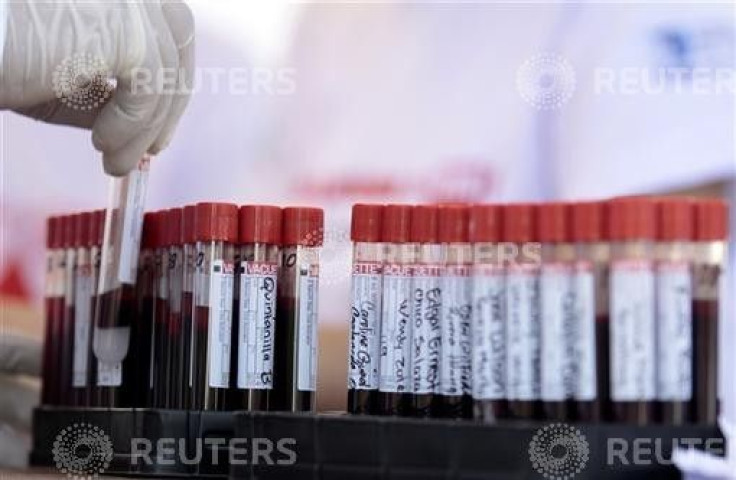Ebola Outbreak 2014: Bill And Melinda Gates Leading Study On Survivor Blood Transfusions

Companies and aid groups led by Bill and Melinda Gates are teaming up to test experimental drugs and collect blood plasma from Ebola survivors to help treat patients in West Africa, the Associated Press reported Tuesday. Several Ebola patients recovered from the disease after receiving blood plasma containing vital antibodies, but without a study, there’s no way of knowing for sure whether survivor blood transfusions work. That’s where the Gates family comes in.
The Bill & Melinda Gates Foundation is donating $5.7 million to the project, which starts within a month, to scale up manufacturing for treatment drugs -- including brincidofovir -- to be tested in Ebola-affected West African countries such as Guinea. North Carolina-based Chimerix Inc. developed brincidofovir for treatment of other types of diseases, but it has also been used in a few Ebola cases, and lab tests suggest the antiviral medicine might help fend off the deadly virus, according to the Associated Press.
There is currently no cure or treatment for Ebola. Those who manage to survive Ebola build up antibodies against the virus and become immune to the strain that infected them. But the medical community is unable to determine whether or not survivor blood transfusions help an Ebola patient survive. The second part of this project aims to find an answer.
Project leaders in Africa will collect blood plasma from Ebola survivors to use as “a tool for a future epidemic,” Microsoft co-founder Bill Gates told the Associated Press in an interview. But that’s no simple task. Donated blood will be filtered through a bloodmobile, a machine used for removing small amounts of plasma and returning the rest of the blood to the donor. Although complex, this process allows donors to give blood as frequently as every two weeks. Three bloodmobiles, donated by another Microsoft co-founder and the Greenbaum Foundation, have been sent to Africa, where the Clinical Research Management Inc. will head the plasma study, according to the Associated Press.
Dr. Kent Brantly, an American missionary doctor who survived Ebola, recently donated blood to Dr. Rick Sacra, another doctor stricken with the disease. Brantly himself received a blood donation from a Liberian boy who survived Ebola while under Brantly’s care.
“The bottom line is that we really don’t know if it helps and to what degree it might help,” said Dr. Luciana Borio, who is leading the Food and Drug Administration’s response to the Ebola epidemic in West Africa. “We would love not to be in the same situation in the future,” Borio said at a press conference, according to the AP.
© Copyright IBTimes 2024. All rights reserved.











